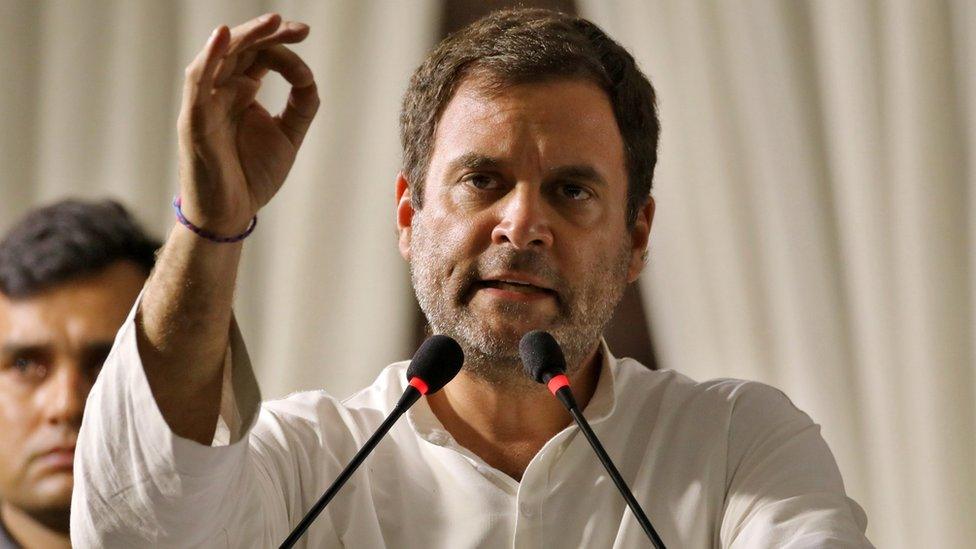Rahul and Sonia Gandhi: What is the National Herald case?
- Published
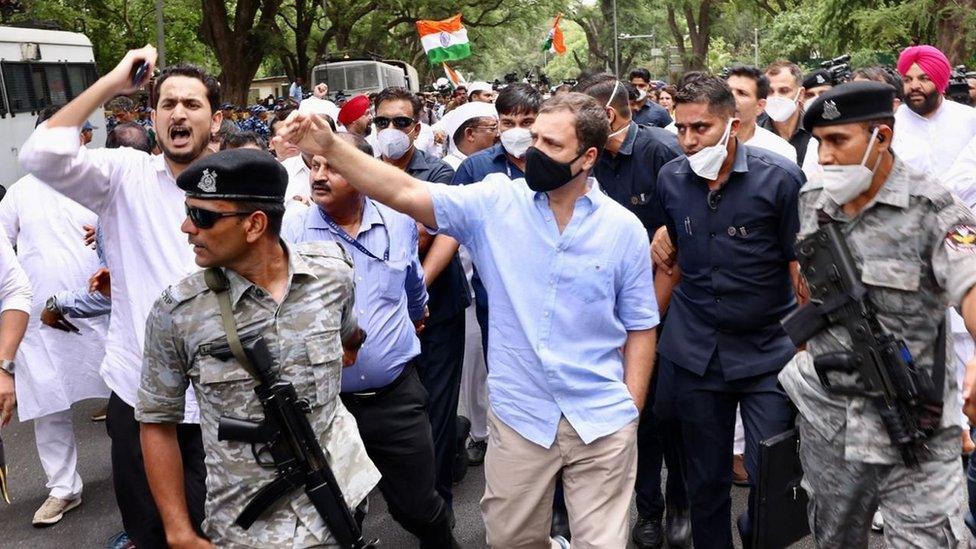
Rahul Gandhi marched to the Enforcement Directorate office in Delhi last week
Rahul Gandhi, a senior leader of India's Congress party, is making his fifth appearance before a government agency on Tuesday in connection with corruption allegations.
Mr Gandhi visited the office of the Enforcement Directorate (ED) - which investigates financial crime - in the capital, Delhi, thrice last week amid protests by his party members. Over the past few days, he has been questioned for more than 40 hours.
Congress leaders, who have alleged that Mr Gandhi is being deliberately harassed for his political activities, have said they would continue their protests. On Monday, party leaders met President Ramnath Kovind "to register their protest against the vicious and unprovoked attack" by the Delhi police against its protesting members last week.
The ED has summoned Mr Gandhi and his mother, Congress party president Sonia Gandhi, to explain allegations of money laundering in what has come to be known as the National Herald Case.
On Monday, Ms Gandhi, who had tested positive for Covid, was released from hospital. The ED has asked her to appear for questioning on 23 June.
The case was brought by Subramanian Swamy, a politician from the governing Bharatiya Janata Party (BJP), who accuses the Gandhis of misusing party funds to buy a firm that published the now-defunct National Herald newspaper.
The Gandhis deny any financial impropriety.
What is the National Herald?
The National Herald newspaper was started in 1938 by Jawaharlal Nehru, India's first prime minister and Rahul Gandhi's great grandfather.
The newspaper was published by Associated Journals Limited (AJL) which was founded in 1937 with 5,000 other freedom fighters as its shareholders. The company published two other dailies - the Qaumi Awaz in Urdu and Navjeevan in Hindi.
Shaped by some of the most influential leaders of the time, the National Herald came to be identified with India's freedom struggle, earning it the reputation for being the great nationalist newspaper of the country.
The newspaper's fierce and incisive editorial style - Nehru routinely wrote strong-worded columns - were met with the derision of the British government, which banned it in 1942, forcing the daily to shut down. But the paper reopened three years later.
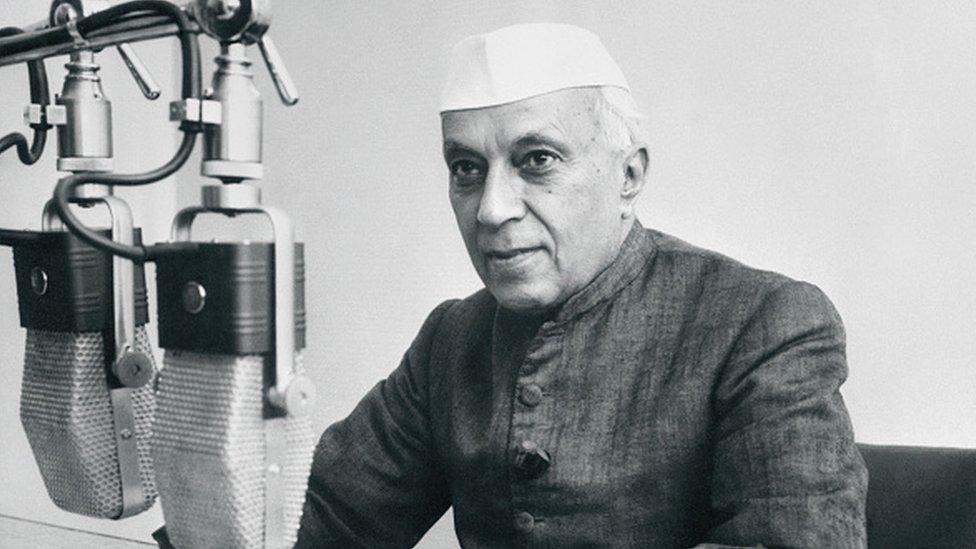
Jawaharlal Nehru started the National Herald in 1938
In 1947, when India won independence, Nehru resigned as chairman of the board of newspaper after taking over his role as PM.
But the Congress party continued to play a huge role in shaping the newspaper's ideology. In a message to the National Herald on its silver jubilee in 1963, Nehru himself spoke about the paper, external "generally favouring Congress policy" while maintaining "an independent outlook".
The National Herald went on to become one of the leading English dailies under the tutelage of some of India's finest journalists, even as the paper continued to be funded by the Congress party.
But the newspaper again ceased operations in 2008 for financial reasons. In 2016, it was relaunched as a digital publication.
What are the allegations against the Congress?
The case against the Gandhis was brought in a trial court by Mr Swamy in 2012.
Mr Swamy has alleged that the Gandhis used Congress party funds and took over AJL to try to acquire more than 20bn rupees in property assets.
At the time of shutting down the National Herald in 2008, AJL owed the Congress an accumulated debt of 900m rupees ($13m; £10m).
In 2010, the Congress assigned this debt to Young India Private Limited, a non-profit company that had been created a few months earlier. Sonia and Rahul Gandhi are among its board of directors and they each own 38% of the company.
The remaining 24% is owned by Congress leaders Motilal Vora and Oscar Fernandes, journalist Suman Dubey and entrepreneur Sam Pitroda, who are also named in the case.
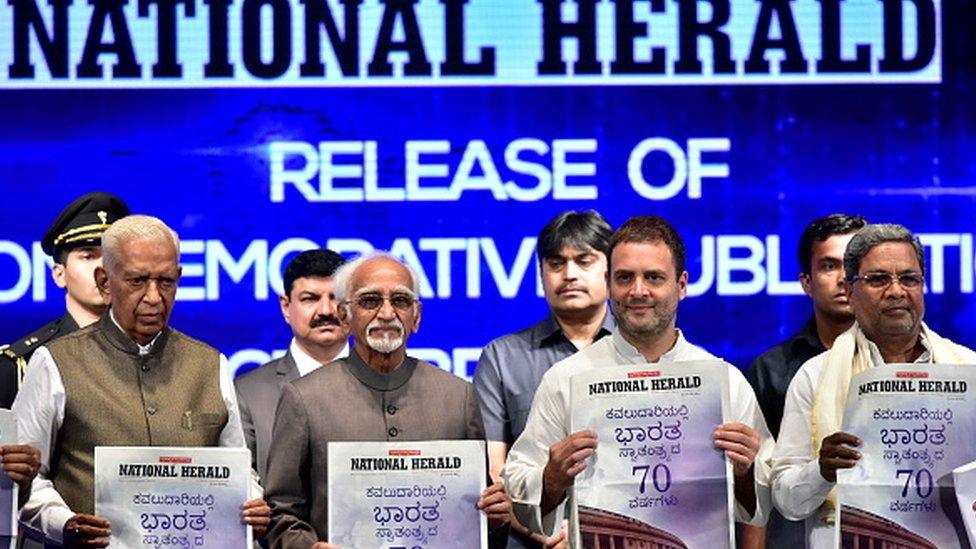
The Congress funded the National Herald
Mr Swamy alleges that the Gandhis used subterfuge to "take over" assets worth millions in a "malicious" manner.
Young India acquired complete control over AJL and its real estate, located in Delhi, Lucknow, Mumbai and other cities, the BJP leader has alleged.
What does the Congress say?
The party has described it as "a strange case of alleged money laundering without any money" and accused the BJP of "political vendetta".
It says that the Congress - which governed India for most of the years since the country became independent - will "not be cowed down" and "fight it out".
The party says that Congress bailed out the Herald publisher AJL when it ran into financial problems because it believed in its historical legacy. Over time, the Congress lent about 900m rupees to AJL.
In 2010, the party says, AJL became debt-free when it swapped its debt for equity, and assigned the shares to the newly created Young India Private Limited.
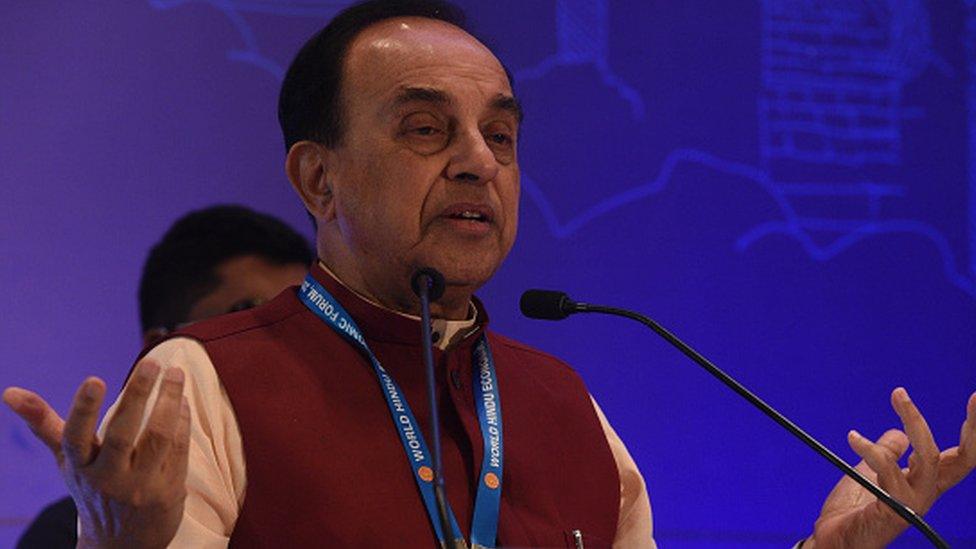
The complaint against the Gandhis was filed by Subramanian Swamy, a senior BJP leader
Young India, the Congress says, is a "not-for-profit company" and that no dividends have been paid to its shareholders and directors.
The AJL, it insists, "continues to be the owner, printer and publisher of National Herald and that there is no change or transfer of property".
Party spokesman Abhishek Manu Singhvi said by targeting the National Herald, the BJP was "disrespecting and dishonouring India's freedom fighters, the stalwarts of the nation and their contributions to the freedom struggle".
He also accused the government of using ED and other federal law enforcement agencies against its political opponents to harass them.
Prime Minister Narendra Modi's BJP government has been widely accused of using government agencies to target its critics.
Related topics
- Published19 December 2015
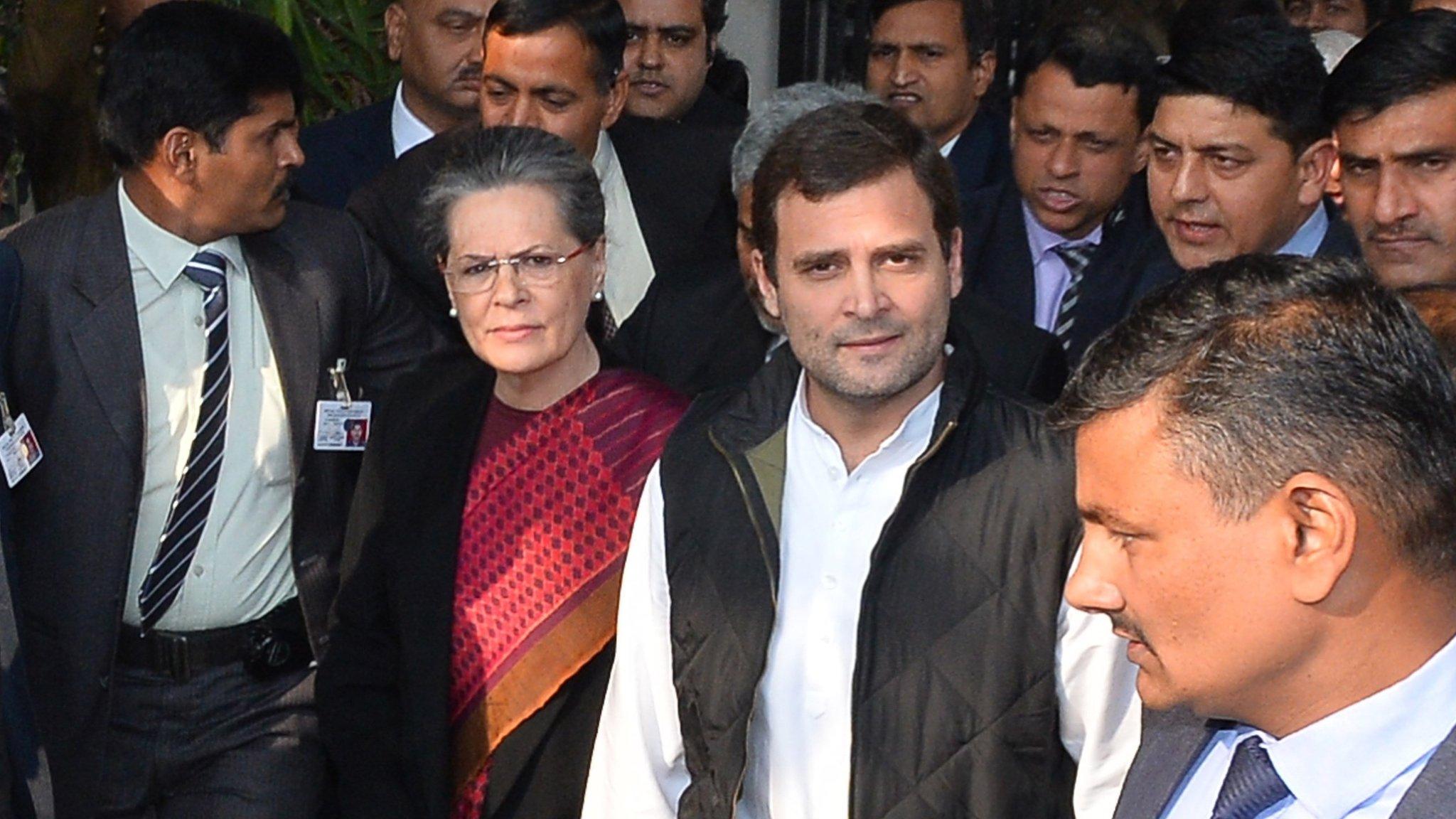
- Published24 May 2019
